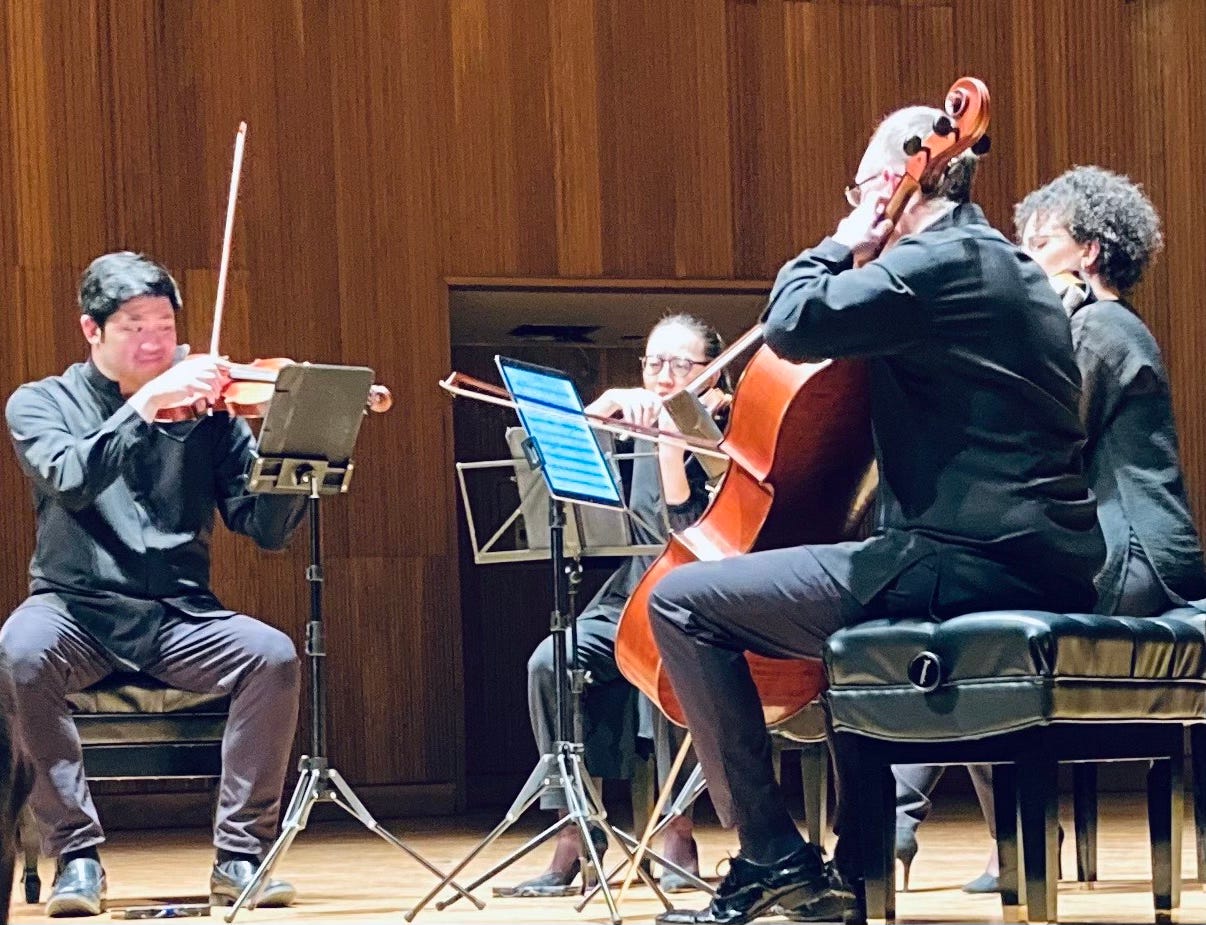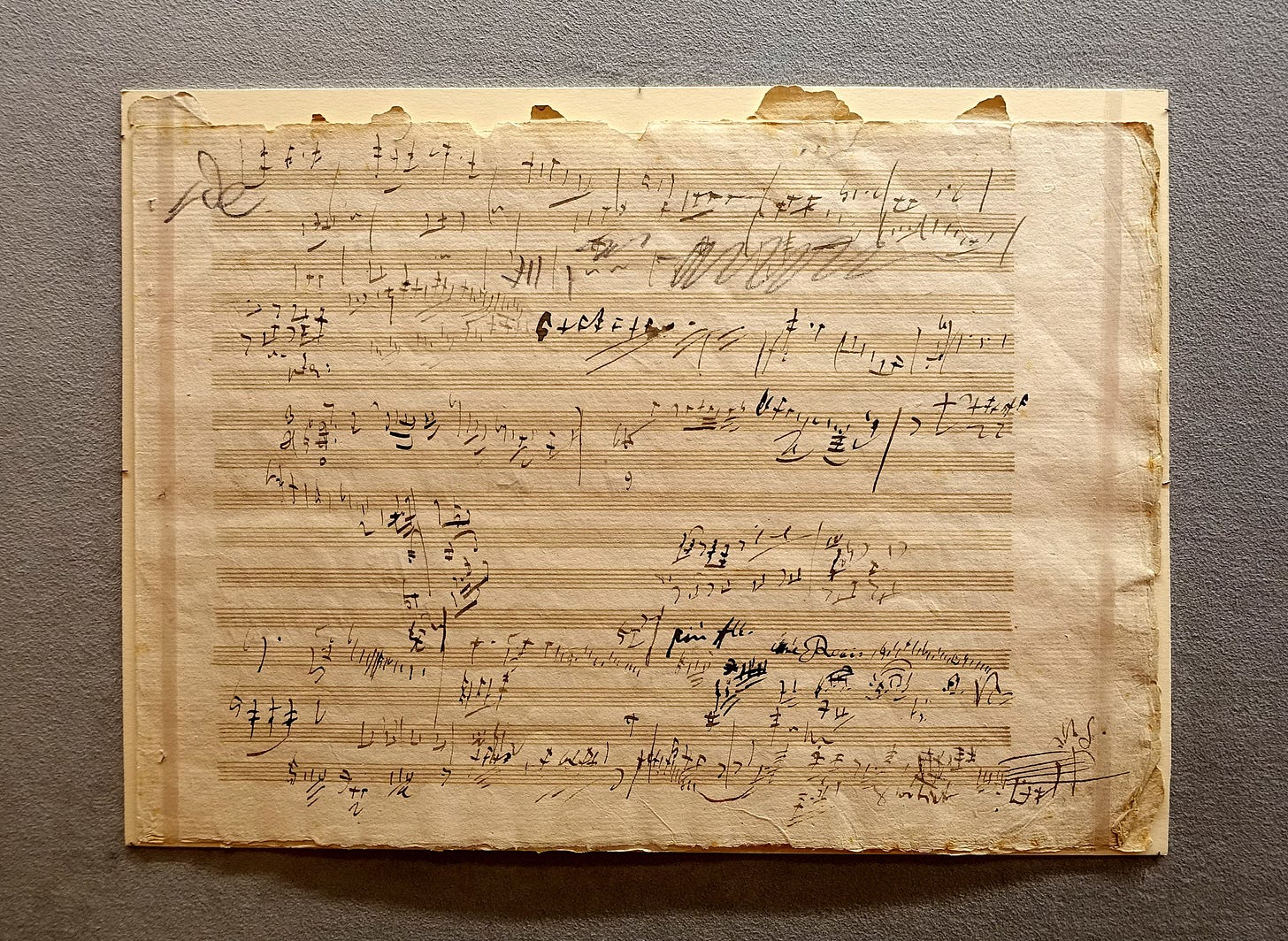Concert Review: The Verona Quartet Performs Beethoven
Concert Four In The 70th Annual Slee Beethoven Quartet Cycle
The Verona Quartet performed Concert Number 4 of the six concert Slee Beethoven Quartet Cycle at UB’s Slee Hall last night (March 27, 2025).
The Verona’s rich, ensemble sound and technical mastery wrung the passion and pathos out of some of Beethoven’s finest works.

The program began with the Middle Period “Serioso,” continued with the early Op. 18, No. 6, and concluded with the Quartet in A minor, Op. 132, written just two years before the great composer’s death and filled with a sublime, grateful, melancholy.
“It Affected Me Body And Soul”
Setting: July 5, 1809, Vienna.
Napoleon’s First Empire is at its height but fighting on two fronts: a peninsular war against Spain, Portugal, and the United Kingdom, and a second front in Central Europe against Austria.
Napoleon briefly occupied Vienna in May 1809 but was forced to withdraw after defeat at the Battle of Aspern-Essling. He regrouped his armies on an escarpment ten miles away before fighting the Battle of Wagram, the largest and bloodiest battle in European history up to its time; 300,000 men fought and 74,000 were killed.
During the fighting, Vienna was battered with Napoleon’s unrelenting artillery barrage. The stalwart Viennese citizens who remained in the great city during the siege included one Ludwig Van Beethoven who had abandoned his studio to take refuge in a cellar with his brother Carl, at one point covering his ears with pillows to protect his degenerating hearing.
The trauma affected Beethoven deeply; he recalled “nothing but drums, cannons, men, misery of all sorts,” admitting “it affected me body and soul.”

Beethoven wrote his “Serioso” Quartet, String Quartet in F minor in 1810 in the wake of this trauma; the quartet draws its name, “Serioso,” from the tempo marking at the beginning of the Third Movement.
That movement is a virtual soundtrack of his trauma, beginning at 12:20 in the Ariel Quartet’s performance below. One can almost see desperate Viennese scrambling for cover as Napoleon rains fiery death.
Beethoven virtually created a new musical vocabulary to express his trauma, including rhythmic ambiguity with frequent and sudden changes in tempo. He likely didn’t expect his audience to understand and in a letter wrote, “[t]he Quartet [Op. 95] is written for a small circle of connoisseurs and is never to be performed in public."
The Verona gave a note-perfect performance while retaining its distinct, collective sound in this short but highly demanding composition.
“This Piece Is To Be Played With The Greatest Delicacy”
Beethoven published Opus 18 No. 6 in 1801 when he was 31. Its stately opening is a clear homage to the Classical Period; one can clearly hear Mozart’s influence in the first few bars in this performance by the Amphion String Quartet.
The fourth movement (16:23) is marked "Questo pezzo si deve trattare colla più gran delicatezza" ("This piece is to be played with the greatest delicacy”) and stands in stark contrast to majestic, Mozartian opening.
Keep reading with a 7-day free trial
Subscribe to Media Room - The Arts in Real Life to keep reading this post and get 7 days of free access to the full post archives.



